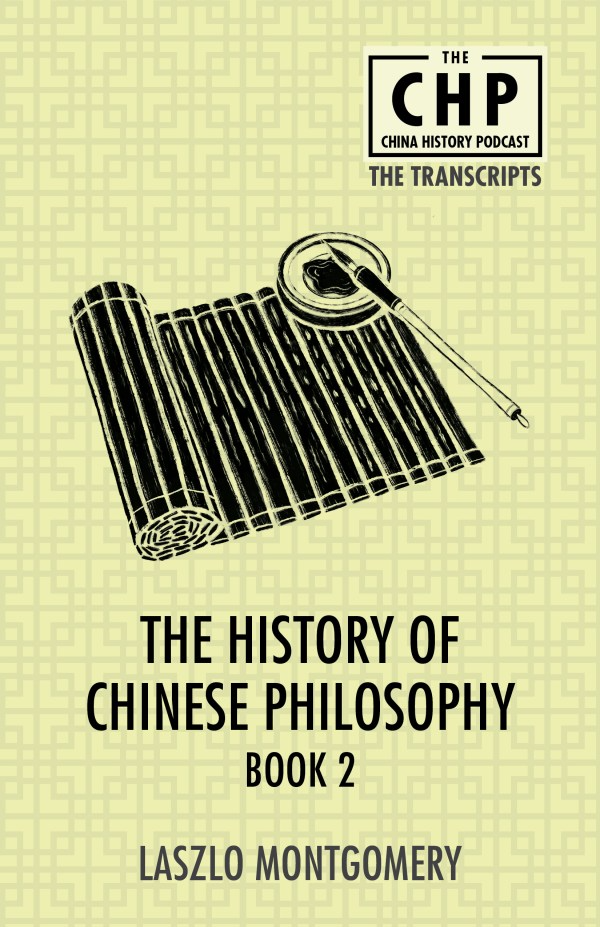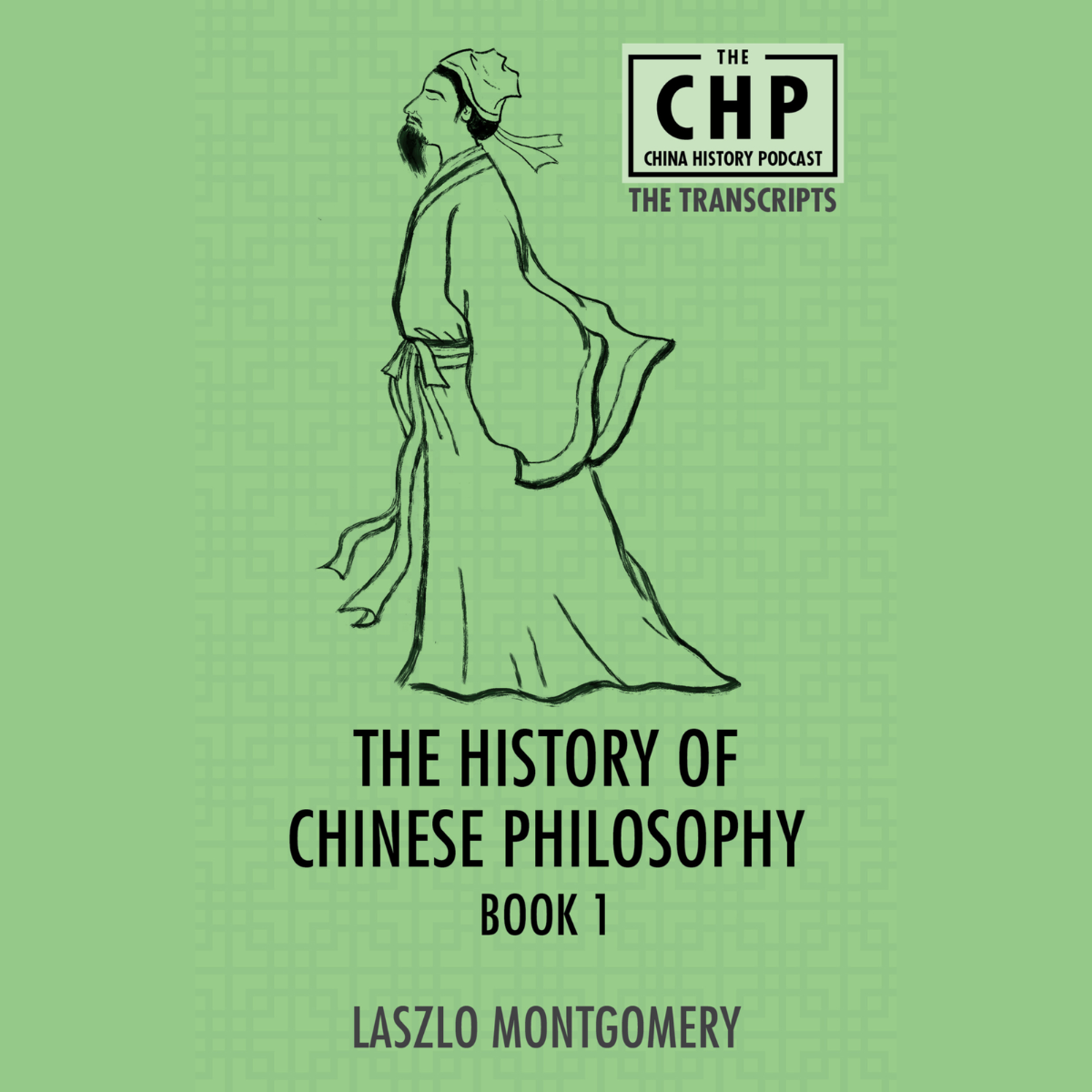Ep. 189 | The History of Chinese Philosophy (Part 6)
In this Part 4 of our History of Chinese Philosophy series, the history of Daoism is explored, as well as its main characters, Laozi and Zhuangzi, and what they called for in those dark Eastern Zhou times.
Daoism is both a philosophy and a religion, but this episode only explores the former. The Xuanxue thinkers Wang Bi, Guo Xiang, and Xiang Xiu are also discussed, as well as the Neo-Daoism that evolved in the Han.
As Daoism and Confucianism evolved in China, side by side, there was occasionally some interesting overlap. Confucians from here on out actively explored ways to reconcile their philosophy with the other major contending schools of thought, Daoism and Buddhism.
Listen On Your Favorite Podcast Player
Terms in Episode
| Pinyin/Term | Chinese | English/Meaning |
|---|---|---|
| Chǔ | 楚国 | One of the Warring Kingdoms of the late Eastern Han |
| Dào | 道 | The Tao, the Way, the Path, take your choice |
| Dàodéjīng | 道德经 | The first great book of Daoism |
| Dàojiā | 道家 | Daoism the philosophy |
| Dàozàng | 道藏 | The collected works of Daoism. The Daoist Canon |
| Dé | 德 | Virtue |
| Fāngshì | 方士 | Daoist practitioners of alchemy, astrology, divination, fēng shuǐ and a whole lot more |
| Guō Xiàng | 郭象 | Philosopher who lived 252-312 CE |
| Guōdiàn Village | 郭店 | Site of a treasure trove of ancient relics, unearthed in 1993. Located near Jingmen |
| Huáng-Lǎo | 黄老 | The Yellow Emperor - Laozi form of Daoism (came later than the Lao-Zhuang form) |
| Huángdì | 黄帝 | The Yellow Emperor |
| Huáxià | 华夏 | Ancient core China. The collected tribes of the ancient Yellow River Valley civilization |
| Huì Shī | 惠施 | Verbal sparring partner of Zhuangzi, also called Huìzǐ 惠子 |
| Hàn Dynasty | 汉朝 | Long running dynasty from Ancient times, running from 206 BCE to 220 CE |
| Héběi | 河北 | Another old old province of China |
| Hénán | 河南 | Hebei's neighbor to the south. |
| Húběi | 湖北 | Province located in Central China |
| Jī family | 姬家族 | The founding family of the Zhou Dynasty |
| Jīng | 周景王 | Followed his father King Ling as Zhou monarch. he reigned 544-520 BCE |
| Jīngmén | 荆门 | Located in Hubei province west of Wǔhàn. Jimgmen is the sister city of North Glengarry in Eastern Ontario, Canada |
| Lǎo Dān | 老聃 | Perhaps a third name that Laozi might have gone by |
| Lǎo-Zhuāng | 老庄 | The most commonly known form of Daoism, named for the two most important texts, The Laozi and The Zhuangzi |
| Lǎozǐ | 老子 | Also known as Lao Tzu, considered the founder of Daoism and writer of the Dao De Jing. Died in 531 BCE |
| Lǐ Dān | 李聃 | Or it could have been this one that Laozi went by |
| Lǐ Ěr | 李耳 | Laozi's alleged real name |
| Méngchéng | 蒙城 | Zhuangzi's birthplace, located in Anhui province, Bozhou Prefecture, Chengguan County |
| Mǎwángduī | 马王堆 | Another famous tomb site located near Changsha, Hunan |
| nèipiān | 内篇 | The Inner Chapters of the Dao De Jing |
| Qì | 气 | Breath or your "life force" |
| Shèngrén | 圣人 | A saint, sage, wise person |
| Shāndōng | 山东 | Province in China where Lu and Qi States were located |
| Shāng | 商 | The dynasty that preceded the Zhou |
| Shānxi | 山西 | Ancient province in China |
| Shǎnxī | 陕西 | Shanxi's next door neighbor |
| Shǐjì | 史记 | Records of the Grand Historian |
| Sòng State | 宋国 | Old Zhou era state located in present day Ānhuì province |
| Sīmǎ Qiān | 司马迁 | Han era writer of the Record of the Grand Historian. Also called the Herodotus of China |
| wàipiān | 外篇 | The Outer Chapters |
| Wáng Bì | 王弼 | Philosopher who lived 226 to 249 CE |
| Wúwéi | 无为 | Non-action, hard to explain |
| Wǔ Zétiān | 武则天 | Empress Regnant of the Zhou Dynasty, the dynasty she founded in 690. Also Empress Dowager of the Tang Dynasty. Quite a woman of accomplishments! |
| Xiàng Xiù | 向秀 | Philosopher who lived 227-272 CE |
| Xuánxúe | 玄学 | "Dark learning" - a mystical school developed in the 3rd and 4th centuries, characterized by metaphysical speculations seeking to adapt Daoist theories to a Confucian melieu (Thanks Pleco!) |
| Xuánzōng | 玄宗 | Tang Emperor from 713-756. The longest reigning of the Tang emperors |
| Yīn and Yáng | 阴阳 | The two opposing forces that control all change and transformation in the world, and the universe too |
| Yǐn Xǐ | 尹喜 | The last one to see or speak with Laozi |
| Zhou King Líng | 周灵王 | Reigned 571-545 BCE, when Confucius was born. |
| Zhuāng Zhōu | 庄周 | Zhuangzi's name |
| Zhuāngzǐ | 庄子 | Writer of the book that bears his name, also known as the Second Book of the Tao. He lived 369-286 BCE |
| Zhāng Dàolíng | 张道陵 | Founder of the Way of the Celestial Master sect of Daoism |
| Zhēnrén | 真人 | Perfected person |
| Zhōngguó | 中国 | China, the Middle Kingdom |
| Zhōu | 周 | The dynasty that followed the Shang...ran a long time, from 1046 BCE to 256 BCE |
| Ānhuì | 安徽 | Province in China |









Here we begin a two-part overview on Daoism, starting with Lao Tzu.